She Business
Jihan Abbas: Griffin Insurance’s Rise and Kenya’s Insurance Future
“Success in business, especially in a market like Kenya, demands persistence. There are days when things don’t go as planned—especially when you’re trying to innovate in a conservative industry—but you have to keep pushing,” explains Jihan Abbas. “It’s also important to be customer-centric. We built Griffin Insurance around what customers actually want, not what the industry thinks they need.”
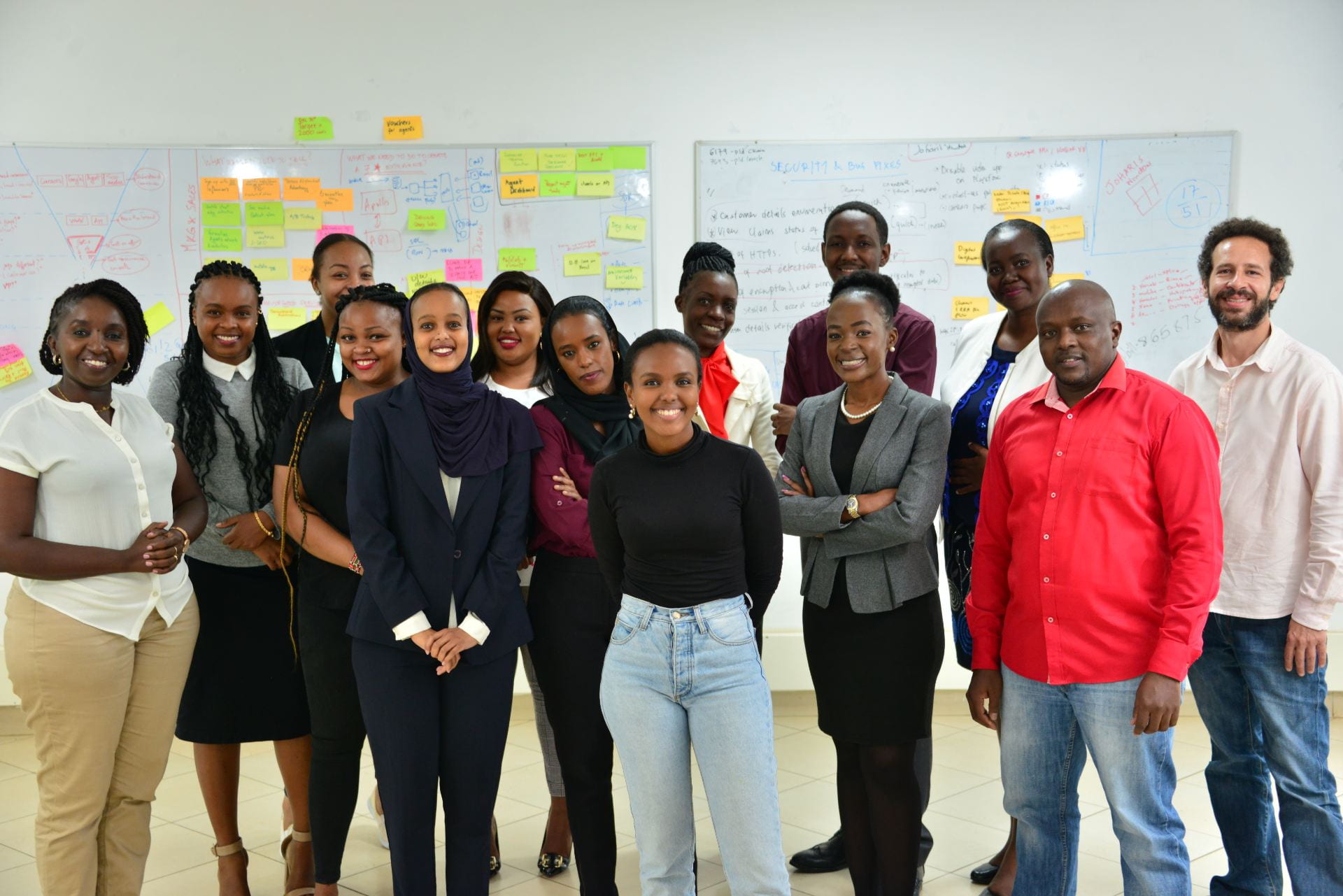
:Revolutionizing Kenya’s Insurance Industry through Digital Innovation and Entrepreneurial Resilience
By Charles Wachira
Jihan Abbas, aged 31, identified an opportunity to simplify the insurance experience in a sector often criticised for its complexity and bureaucracy. With mobile penetration in Kenya at over 95%, she saw the potential for a digital-first insurance solution to reach more customers, particularly the tech-savvy younger generation.
“I realized the insurance industry was ripe for disruption,” says Jihan. “Customers were frustrated by long processes and lack of transparency. With Griffin Insurance, we’ve built a platform where users can buy, renew, and manage their insurance policies all on a mobile app, within minutes. This is the future of insurance—not just in Kenya, but across Africa.”
By leveraging technology and automation, Griffin Insurance eliminates much of the paperwork traditionally involved in buying insurance, providing customers with a fast and seamless experience. The company focuses heavily on motor insurance, allowing users to pay premiums, track claims, and even pause coverage when their vehicles are not in use—a feature unique to Griffin.
What It Takes to Succeed in Business: Jihan’s Perspective
Building a successful business in a sector as highly regulated and competitive as insurance requires a blend of resilience, innovation, and an unwavering focus on customer needs. According to Jihan, her journey has been challenging but also deeply rewarding.
“Success in business, especially in a market like Kenya, demands persistence. There are days when things don’t go as planned—especially when you’re trying to innovate in a conservative industry—but you have to keep pushing,” she explains. “It’s also important to be customer-centric. We built Griffin Insurance around what customers actually want, not what the industry thinks they need.”
Jihan emphasizes the importance of having the right team. “You need a team that is as committed to your vision as you are. Surround yourself with people who are smarter than you and can bring ideas to the table. Collaboration is key.”
Finally, Jihan points to risk-taking as a core element of her entrepreneurial journey. “In business, you have to be willing to take calculated risks. When I started Griffin, we were entering uncharted territory with a fully digital model. But I believed in the idea and trusted that technology was the answer to many of the pain points in this industry.”
The Insurance Landscape in Kenya: Challenges and Opportunities
Kenya’s insurance industry has seen steady growth, driven by a growing middle class, an expanding economy, and increased awareness of the need for protection. However, insurance penetration—the ratio of insurance premiums to GDP—remains low. As of 2022, Kenya’s insurance penetration stood at around 2.4%, which is below the African average of about 3% and far below leading countries like South Africa, where penetration is above 17%.
Despite this, Kenya’s insurance market holds immense potential. The country ranks as one of the top insurance markets in East Africa, supported by a relatively well-developed financial services sector and robust mobile infrastructure.
“The low penetration rate represents both a challenge and an opportunity,” notes Jihan. “On the one hand, it shows there’s a long way to go in terms of educating people about the benefits of insurance. On the other hand, it means there’s a huge untapped market. At Griffin, we’re leveraging digital platforms to reach people who may never have considered insurance before.”
Comparison with Other African Markets
Kenya lags behind countries like Morocco, where insurance penetration is at 4.5%, and Namibia, with 6.7%, but is on par with other East African countries such as Uganda and Tanzania, where insurance penetration hovers around 1-2%. The low insurance uptake across the continent is largely attributed to economic challenges, low disposable incomes, and a lack of trust in insurance providers.
“One of the reasons why insurance penetration is lower in Kenya compared to countries like South Africa or Namibia is the lack of trust in traditional insurance models,” says Jihan. “People often feel they don’t get value for their money, and claims processes can be opaque. At Griffin, we’ve worked hard to build trust by ensuring transparency and creating a hassle-free claims process.”
The Way Forward: Digitization and Innovation
The future of Kenya’s insurance industry lies in digitization and accessibility. With over 47 million mobile phone users in the country, mobile-based insurance services, like those provided by Griffin, are becoming a more viable way to increase coverage. Microinsurance—affordable, smaller-scale insurance products targeted at low-income earners—is also expected to drive growth in the sector, particularly as mobile money services like M-Pesa expand their integration with insurance products.
“Kenya is at the forefront of mobile innovation, and insurance companies need to tap into that potential,” Jihan says. “At Griffin, we are constantly exploring new ways to reach customers via mobile and provide them with products that fit their needs and lifestyles. I see the future of insurance as being on-demand, flexible, and fully integrated into our everyday lives.”
Insurance Regulatory Changes: A Positive Outlook
Jihan is optimistic about the regulatory changes taking place in the industry. The Insurance Regulatory Authority (IRA) has been pushing for reforms to streamline operations, make insurance more accessible, and ensure fair treatment of policyholders.
“Regulation is crucial for maintaining trust in the industry,” Jihan states. “At Griffin, we’ve embraced these changes because they align with our vision of providing a fair, transparent, and efficient insurance service. We are excited about what the future holds for the industry.”
Conclusion: A Bright Future for InsurTech in Kenya
As Griffin Insurance continues to grow, Jihan Abbas remains a pioneer in Kenya’s InsurTech space, paving the way for a new era of customer-centric, tech-driven insurance services. With a market ripe for innovation and a population increasingly familiar with digital solutions, the future of Kenya’s insurance industry is undoubtedly bright. As more Kenyans adopt digital insurance platforms, industry leaders like Griffin will be at the forefront of driving insurance penetration and financial inclusion in the country.
In her final thoughts, Jihan offers advice to aspiring entrepreneurs: “Start small, dream big, and most importantly, stay focused. There will be setbacks, but every challenge is an opportunity to learn and grow. Believe in your vision and don’t be afraid to disrupt the status quo.”
Keywords:InsurTech:Insurance penetration:Digital insurance:Griffin Insurance Kenya:Entrepreneurship in Kenya
She Business
Bethlehem Tilahun Alemu: From Ethiopian Artisan to Global Icon

: Discover how Bethlehem Tilahun Alemu built SoleRebels into a global,
sustainable footwear brand, overcoming challenges and transforming Ethiopian
craftsmanship.
Bethlehem Tilahun Alemu’s story begins in Zenabwork, a modest village on the outskirts
of Addis Ababa, Ethiopia. Growing up, she watched her community struggle with unemployment and poverty, despite a rich heritage of artisanal skills that remained largely untapped.
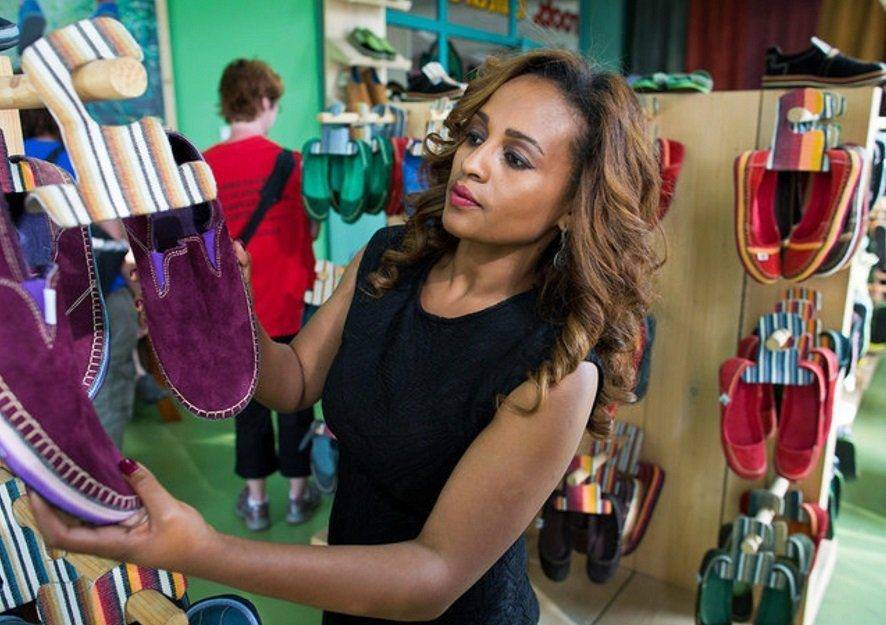
Fueled by determination and a desire to transform her surroundings, Bethlehem
embarked on a journey that would redefine African entrepreneurship and put Ethiopia
on the global map.
Her creation, SoleRebels, isn’t just a footwear brand. It’s a movement—an embodiment
of sustainability, culture, and empowerment.
A DREAM WOVEN WITH TRADITION
In 2005, Bethlehem founded SoleRebels with a simple yet powerful idea: to turn
Ethiopia’s rich artisanal craftsmanship into eco-friendly, globally competitive footwear.
Inspired by traditional “selate” shoes—made from recycled tyres—she envisioned a
brand that blended cultural authenticity with modern design.
She recruited local artisans, many of whom were unemployed, and encouraged them to
innovate while preserving traditional techniques.
Every pair of shoes was a masterpiece, crafted from hand-spun cotton, organic
materials, and repurposed car tyres. Bethlehem’s concept was groundbreaking: a product that told a story while making a global impact.
STARTING FROM SCRATCH
Like many entrepreneurs, Bethlehem’s initial challenge was capital.
With no access to bank loans or large investors, she relied on personal savings and
modest contributions from her family.
Slowly but surely, she built her business, reinvesting profits into training workers and
improving production tools. International grants and initiatives like the SEED Initiative later recognized the potential of her venture, providing additional support.

The early days weren’t easy. Artisans lacked modern tools, and accessing raw
materials was an uphill battle. But Bethlehem, known for her tenacity, tackled these challenges head-on. She developed partnerships with local suppliers to ensure a consistent supply of quality materials and invested in upskilling her workforce.
Breaking into the global market presented another hurdle. Competing against established brands seemed daunting, but Bethlehem found her edge: sustainability and ethical production.
In an era when consumers were becoming eco-conscious, SoleRebels’ ethos of fair wages, recycled materials, and cultural storytelling resonated deeply.
BUILDING A GLOBAL EMPIRE
Fast forward to today, and SoleRebels has a presence in over 30 countries, with
flagship stores in cities like San Francisco, Tokyo, and Barcelona.
It is also the first African footwear brand to be certified by the World Fair Trade
Organization (WFTO)—a testament to Bethlehem’s commitment to doing business the
right way.
Her company directly and indirectly employs over 1,200 people, making it one of
Ethiopia’s largest employers in the artisan sector.
Workers earn more than three times the industry average, a policy Bethlehem takes
immense pride in. “When we pay people well, we don’t just change lives—we transform
communities,” she says.
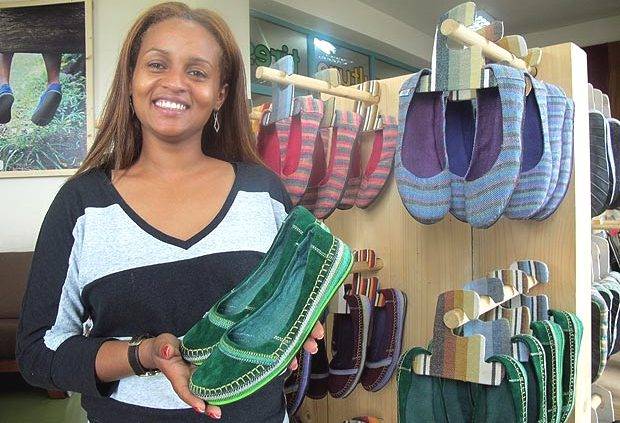
MENTORS AND INSPIRATIONS
Bethlehem often credits her late grandfather, a farmer and community leader, as her
greatest mentor.
His work ethic and deep belief in the power of local communities shaped her vision. She
also draws inspiration from global leaders, including Ethiopian Prime Minister Abiy
Ahmed, whose focus on innovation and economic growth aligns with her goals.
RISING ABOVE CHALLENGES
Bethlehem’s entrepreneurial journey has been marked by resilience. When production
scaled up, she faced supply chain disruptions that threatened deadlines. Her solution?
Cultivate long-term relationships with reliable local suppliers and diversify material
sources.
Entering new markets came with its own set of obstacles. Competing against
established brands requires a unique value proposition.
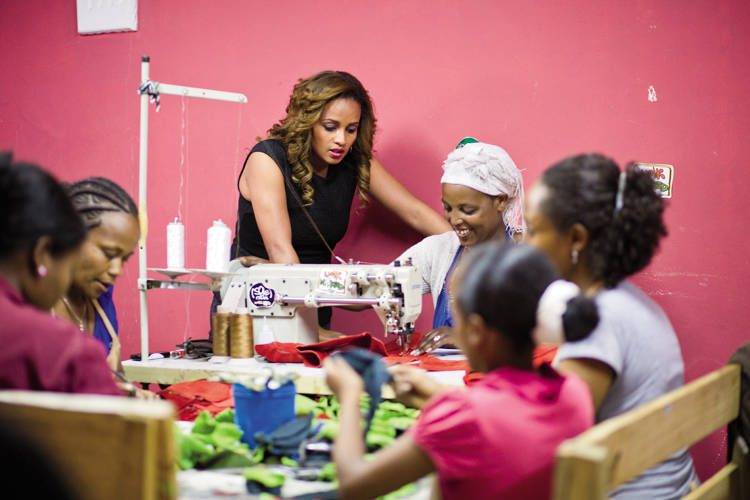
SoleRebels offered more than shoes—it offered a story: a product steeped in Ethiopian
culture, made sustainably, and crafted ethically.
VISION FOR THE FUTURE
Bethlehem isn’t slowing down. Her plans include:
- ● Expanding SoleRebels’ retail presence in Europe and Asia.
- ● Introducing sustainable clothing lines.
- ● Partnering with global brands to promote eco-friendly production in Africa.
Beyond SoleRebels, Bethlehem has a broader mission: to inspire a new narrative for
African entrepreneurship. She wants to show the world that Africa isn’t just a consumer
market but a hub for innovation and excellence.
CONCLUSION: WALKING THE TALK
Bethlehem Tilahun Alemu has redefined what it means to be an entrepreneur. From
Zenabwork’s dirt roads to the global stage, she has shown that success doesn’t come
from resources alone—it comes from vision, grit, and a deep connection to one’s roots.
With SoleRebels, Bethlehem has not only created a thriving business but a model for
how sustainable, ethical enterprises can transform communities. As she continues to
dream big, her footsteps pave the way for the next generation of African changemakers.
She Business
Joyce Akinyi Convicted: Heroin Smuggling Case Exposed

: Kenyan businesswoman Joyce Akinyi faces life imprisonment after being found
guilty of smuggling heroin worth US$ 34,483. Her history with crime has now
unravelled.
Joyce Teresia Akinyi’s story is one of dramatic highs and lows—rising from a successful
businesswoman to being convicted of a large-scale heroin smuggling operation.
With ties to international criminal networks, high-profile relationships, and repeated run-
ins with the law, Akinyi’s life has been marked by controversy and legal battles.
THE HIGH LIFE: BUSINESS AND INFLUENCE
Akinyi first gained prominence as the upscale Deep West Resort owner in Lang’ata,
Nairobi. Known for her affluent lifestyle, she mingled with Kenya’s elite and maintained
significant business interests.
However, behind the glamorous facade lay a darker world of alleged criminal activity.
Her personal life was equally turbulent. In 1998, she met Nigerian businessman Anthony Chinedu, and the couple had two children before formalising their union.
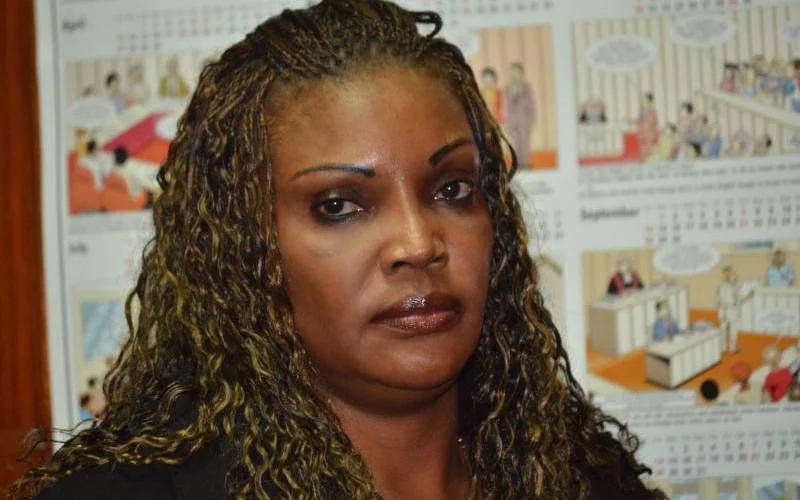
Their relationship was rocky, marked by numerous arrests on drug trafficking charges.
In 2013, Chinedu was deported from Kenya after authorities seized drugs in his
possession, a move that further exposed Akinyi to public scrutiny.
A HISTORY OF LEGAL TROUBLES
Over the years, Akinyi faced repeated allegations of drug trafficking. Her name became
prominent in 2008 when she was arrested in New Delhi, India, alongside former
Budalang’i MP Raphael Wanjala.
Authorities detained the pair with undeclared cash worth Sh7.59 million, suspected to
be linked to drug deals. Although released after intervention by the Kenyan government, the incident marked the start of a string of legal troubles for Akinyi.
In 2013, she and Wanjala were arrested again on the Nairobi-Namanga highway with a
suspicious white powder. Although they claimed it was corn flour, suspicions persisted,
and Akinyi’s criminal associations deepened.
THE TURNING POINT: CONVICTION FOR HERION SMUGGLING
Akinyi’s criminal activities reached a dramatic conclusion in 2019 when a police raid on
Deep West Resort uncovered 2kg of heroin worth Sh5 million hidden in a shoe rack.
The Anti-Narcotics Directorate linked the operation to an international smuggling
network coordinated by Akinyi.
The Jomo Kenyatta International Airport Tribunal found Akinyi guilty under Article
4(a) of the Narcotic Drugs and Psychotropic Substances Control Act, which
mandates life imprisonment for drug trafficking.
The court heard compelling evidence, including photographs of heroin wrapped in white
tape, voice recordings coordinating smuggling activities, and the discovery of a Tabita
Digital Scale used to weigh drugs.
Akinyi’s co-defendants, Paulin Kalala Musankinshay and Peres Adhiambo, were
similarly implicated. Evidence also revealed that Akinyi used multiple fake passports, including a Congolese passport in the names of “Mape Marline Kambura” and “Raha Eveline
Kambere,” enabling her to operate under different aliases.
FINANCIAL CRIMES AND ASSET RECOVERY
Beyond drug trafficking, Akinyi’s wealth came under scrutiny. In 2021, she lost two
luxury vehicles worth Sh20 million to the State, deemed proceeds of crime.
Investigations by the Asset Recovery Agency revealed that Akinyi deposited
suspiciously large sums ranging from Sh60,000 to Sh20 million into various bank
accounts. Her real estate investments—villas built and rented out—further indicated
illicit income sources.
THE END OF THE ROAD
On December 10, 2024, Akinyi faces sentencing, which could include life
imprisonment and a Sh5 million fine. Her fall from grace highlights the dangers of
unchecked ambition and illegal pursuits. Magistrate Njeri Thuku, who presided over the
case, dismissed Akinyi’s defence that the drugs were planted by her estranged husband
Chinedu, calling it baseless.
CONCLUSION
From her meteoric rise as a business mogul to her conviction as a drug trafficker, Joyce
Akinyi’s life is a cautionary tale of how power, wealth, and crime can intertwine.
Her story also underscores Kenya’s ongoing battle with drug trafficking and the far-reaching
consequences of organised crime. For Akinyi, the glitz and glamour of her former life
have now given way to the stark reality of justice.
Nb: Exchange rate 1 USD = 145 Ksh
She Business
How Margaret Nyamumbo Built Kahawa 1893 from the Ground Up
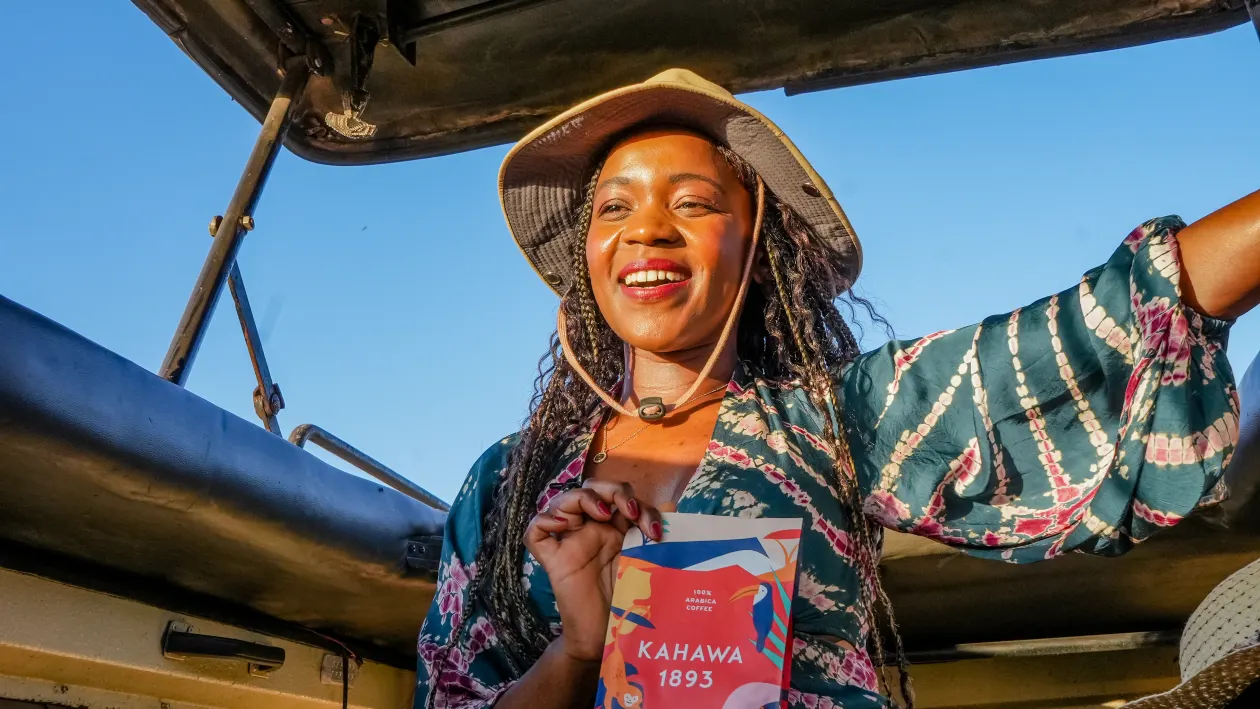
: Discover Margaret Nyamumbo’s journey from Kenya to the U.S. and how she
built Kahawa 1893 to empower women coffee farmers, achieving business
success and social impact
Early Life and Education: Pursuing Global Opportunities
Margaret Nyamumbo’s entrepreneurial journey began in Kenya, where she grew up on a coffee
farm. However, she moved to the U.S., a decision that significantly shaped her path.
In 2000, she travelled to Smith College, a prestigious liberal arts institution in Massachusetts,
to study economics.
Her desire to study abroad stemmed from the limited educational opportunities available for
women in Kenya at the time. As she later explained, her family encouraged her decision, viewing it as a way to give her the best opportunities for success.
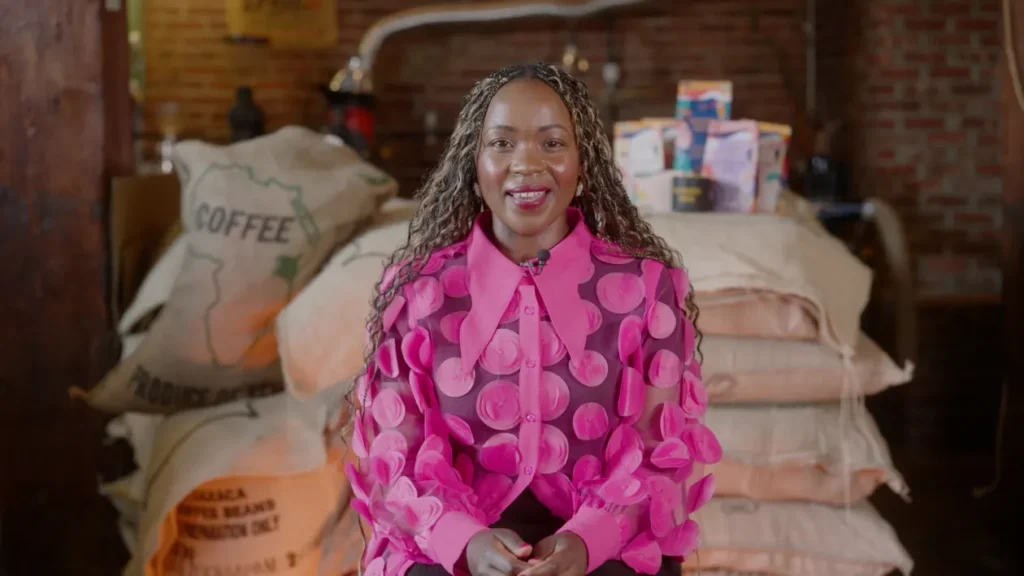
After earning her degree from Smith College, Nyamumbo pursued an MBA at the Wharton
School of the University of Pennsylvania, known for its rigorous business programs.
This solidified her foundation for a future in business, although it was the allure of her roots and a passion for coffee that eventually led her back to entrepreneurship.
From Corporate Work to Entrepreneurship: Embracing Coffee Culture
After completing her studies, Nyamumbo worked in investment banking and consulting, but the world of corporate finance didn’t fully satisfy her ambitions.
It was her return to the coffee industry, deeply connected to her Kenyan heritage, that drove
her entrepreneurial leap. With a vision to support East African coffee farmers, particularly women, Nyamumbo founded Kahawa 1893 in 2018, a coffee brand dedicated to highlighting Kenya’s coffee culture while mpowering local farmers.
The name “Kahawa” is the Swahili word for coffee, while “1893” marks the year when coffee
was first commercially grown in Kenya, grounding her brand in historical significance.
Through Kahawa 1893, Nyamumbo aimed to bring a new approach to the coffee business, one
that not only celebrated East African coffee but also created fair wages for farmers.
Building a Brand with Purpose: Empowering Farmers
Nyamumbo’s vision for Kahawa 1893 went beyond just selling coffee.
She wanted to create a direct impact on the lives of the farmers growing the coffee beans.
The brand’s model incorporated a system where customers could tip the farmers directly via a
QR code found on the coffee bags.
This innovation set the company apart from competitors and positioned it as a socially
responsible business that directly benefited those involved in the production process.
In 2021, Kahawa 1893 hit a major milestone, getting its coffee stocked in Trader Joe’s—the
first Black- and woman-owned coffee brand to be featured there.
This breakthrough moment was significant for Nyamumbo, marking the recognition of her hard work and her commitment to uplifting local farmers.
Overcoming Challenges: What It Takes to Succeed
Despite the challenges of entering a highly competitive market, Nyamumbo’s determination
never wavered. In a 2022 interview with Forbes, she shared her thoughts on what it takes to be a successful entrepreneur.
“You have to be able to take the punches and keep moving,” she said. Her advice reflects the
reality of entrepreneurship: persistence, resilience, and a willingness to learn from failure are
crucial for success.
Nyamumbo also emphasised the importance of passion. “You’ve got to love what you do, or you won’t have the energy to push through the tough times,” she said.
These values have guided her journey, driving Kahawa 1893 to not only succeed but also to
change the way the coffee industry operates, particularly about fair trade and community
empowerment.
The Future of Kahawa 1893: Expanding Horizons
With her success on platforms like Shark Tank and continued global distribution, Nyamumbo’s
Kahawa 1893 is poised for growth.

Her brand continues to expand its reach, and the emphasis on ethical sourcing, community
impact, and high-quality coffee will likely remain at the heart of her business model as she looks to further innovate in the global coffee market.
Through Kahawa 1893, Nyamumbo has shown that business success is not just about
profits—it’s about purpose, people, and passion.
-

 Business & Money9 months ago
Business & Money9 months agoEquity Group Announces Kshs 15.1 Billion Dividend Amid Strong Performance
-

 Politics3 months ago
Politics3 months agoFred Okengo Matiang’i vs. President William Ruto: A 2027 Election Showdown
-

 Politics2 months ago
Politics2 months agoIchung’wah Faces Mt. Kenya Backlash Over Gachagua Impeachment Support
-

 Politics5 months ago
Politics5 months agoPresident Ruto’s Bold Cabinet Dismissal Sparks Hope for Change
-

 Politics5 months ago
Politics5 months agoKenya Grapples with Investor Confidence Crisis Amid Tax Protest Fallout
-

 Politics5 months ago
Politics5 months agoPresident Ruto’s Lavish Spending Amid Kenya’s Economic Struggles Sparks Outrage
-

 Politics4 months ago
Politics4 months agoJohn Mbadi Takes Over Kenya’s Treasury: Challenges Ahead
-

 Business & Money1 month ago
Business & Money1 month agoMeet Kariuki Ngari: Standard Chartered Bank’s new CEO of Africa. What’s Next?





